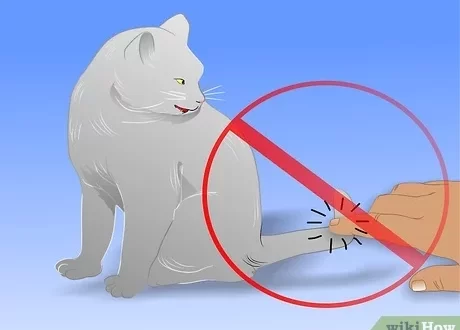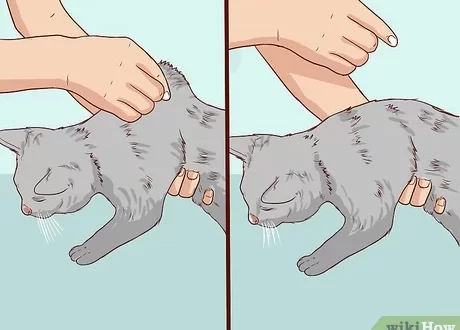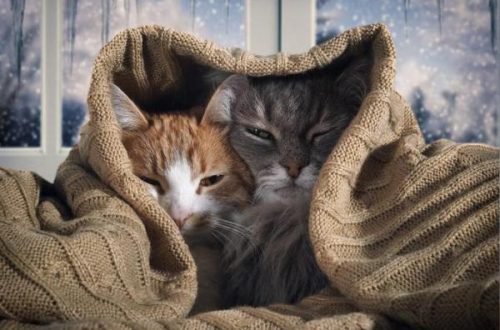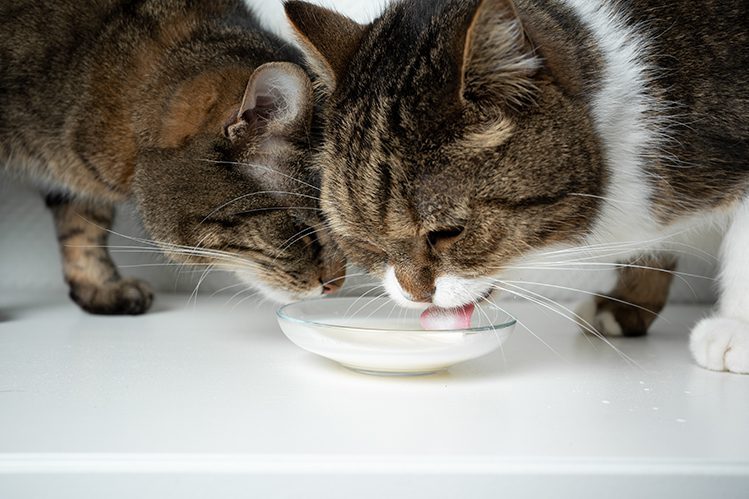
Can cats and dogs have cow’s milk?
With the advent of a puppy or kitten in the family, the question arises about their diet. Everyone knows that in the pet store you can buy special balanced feeds that will be useful to your pet. But the benefits of cow’s milk for four-legged animals are still being debated. Someone believes that since a person can absorb milk, then the pet can handle it. But this is a very old misconception. In the article we will talk about the role of milk in the life of mammals and answer the question of whether cats and dogs can have cow’s milk.
Like other mammals, cats and dogs feed their offspring with breast milk.
In each animal, including humans, this product is different in its composition. For example, a cat’s breast milk contains approximately 10,8% fat, 10,6% protein, and 3,7% sugar. The following ratio is typical for a dog – approximately 9,5% fat, 7,5% protein and 3,8% sugar. But a person has cardinal differences – about 4,1% fat, 0,8% protein and 6,8% sugar. And it’s not just that.
Each species of mammals needs its own ratio of proteins, fats, carbohydrates, vitamins and trace elements. Due to this, the body of young individuals harmoniously develops and prepares for independent life.
Together with breast milk, babies receive not only food, but also strong immunity, antibodies to various viruses, as well as time for physical development. Yes, yes, thanks to breastfeeding, young offspring do not spend energy on getting food, but use it for more necessary purposes: for example, to form an organism and develop social skills.
This period of development of our pets lasts about 3-4 months, while the increased production of lactase continues. It is this enzyme that helps digest milk sugar – lactose.
During the cessation of lactation, lactase production is reduced to a minimum – and the babies switch to normal food. Just like humans, most animals simply won’t be able to digest milk into adulthood. Rather, on the contrary, its use will harm the body: an imbalance of substances, problems with stools, etc.

It is not common for dogs and cats to have milk from another animal in their diet. This is caused by two factors:
As pets age, lactase production decreases. Because of this, the intake of casein and lactose in the body causes indigestion. These substances simply cannot be absorbed, and the immune system directs all its forces to fight a foreign object.
The composition of dog, cat and cow milk is different in its composition. By consuming the milk of animals of a different species, babies cannot get the necessary amount of nutrients and antibodies to diseases characteristic of the species. In addition, cow’s milk in its composition contains a huge amount of protein, which serves as an allergy provocateur.
To summarize, why should cats and dogs not be cow’s milk?
The main reasons why you should not feed cow’s milk to your dog or cat are:
Risk of allergic reactions (conjunctivitis, difficulty breathing, swelling of the paws and muzzle, body odor accompanied by sores).
Risk of food intolerance (bloating, flatulence, vomiting, coughing, sneezing and diarrhoea).
Milk intolerance can also be judged by the behavior of a cat or dog. The affected pet cannot find a place for itself, has problems going to the toilet, itches, licks itself, refuses food, etc.
If you do not provide assistance in a timely manner and do not remove the product from the diet, you can provoke:
Violation of metabolic processes
Malfunctions in the digestive tract.
Such reactions are not characteristic of absolutely all four-legged babies. Still, there are pets who drink cow’s milk and at the same time feel good.
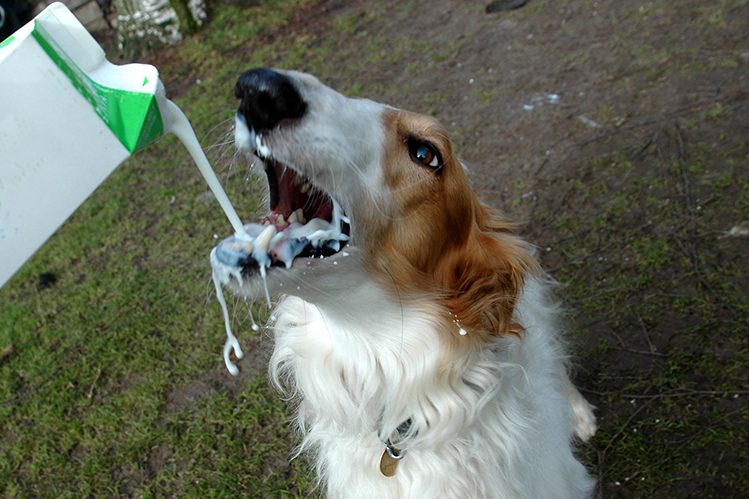
If you notice that after two or three feedings with milk, your four-legged friend does not feel well and remains alert, then you can periodically give it. Unless, of course, your pet really asks for it! But use only pasteurized or UHT milk.
But if you want to find a healthy alternative to milk, it’s better to buy for a pet:
Kefir
Sour cream
sour cream
Cottage cheese.
However, you can introduce any new product into the diet only after consultation with a veterinary specialist. If a dog or cat eats a complete balanced diet, then it does not need other products.
After examining a cat or dog, conducting a series of diagnostic studies (general and biochemical blood tests), asking you about the pet’s life and nutrition, the specialist will help you make a diet plan. It is not necessary that your friend needs any “milk” at all.
We hope that after reading our article, you have a complete picture of the role of cow’s milk in the life of a dog and a cat. Remember that any person is responsible for the health of his pet and should choose only high-quality and healthy products. Well, a veterinarian or breeder can always help make up the diet of your four-legged friend.



